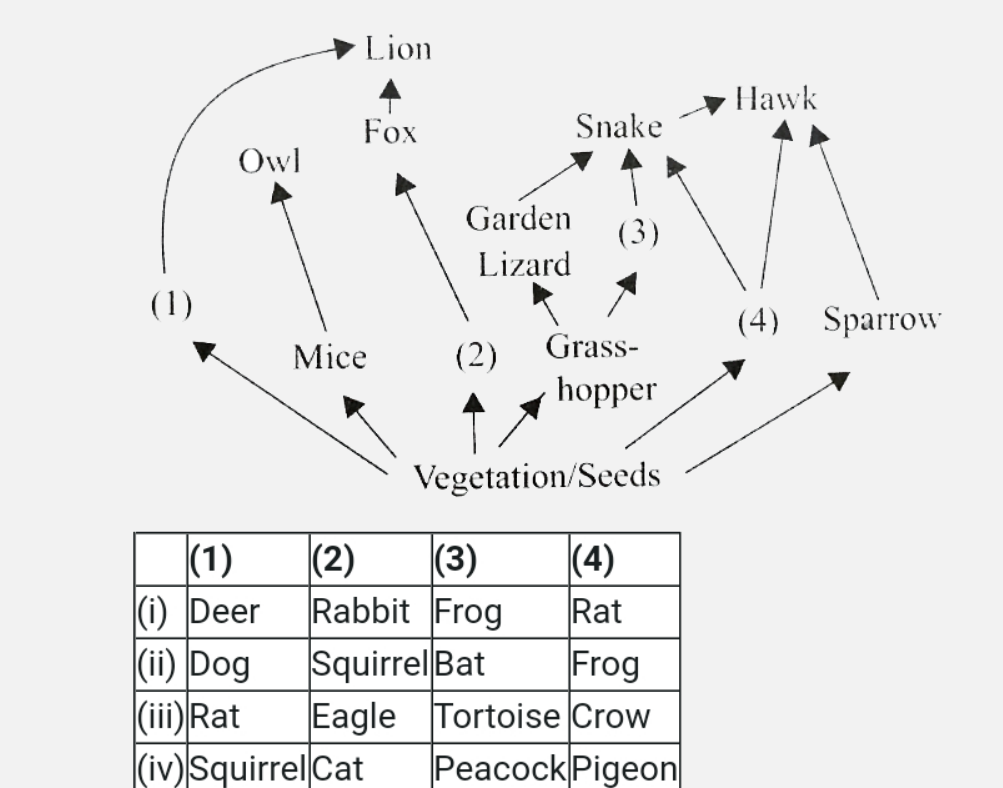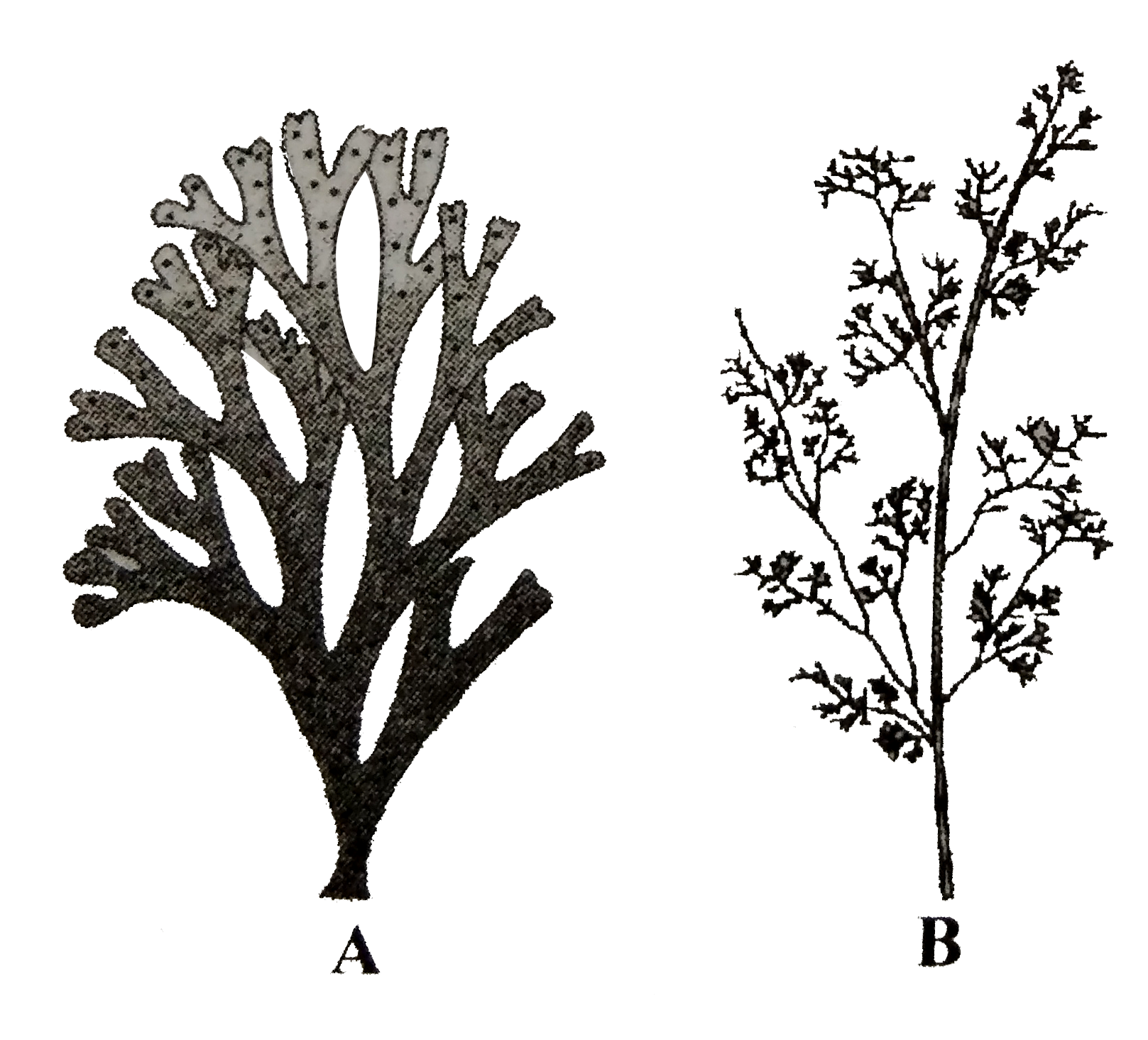Given food web contains some missing organisms, 1,2,3 and 4. Identify these organisms and select the correct answer?
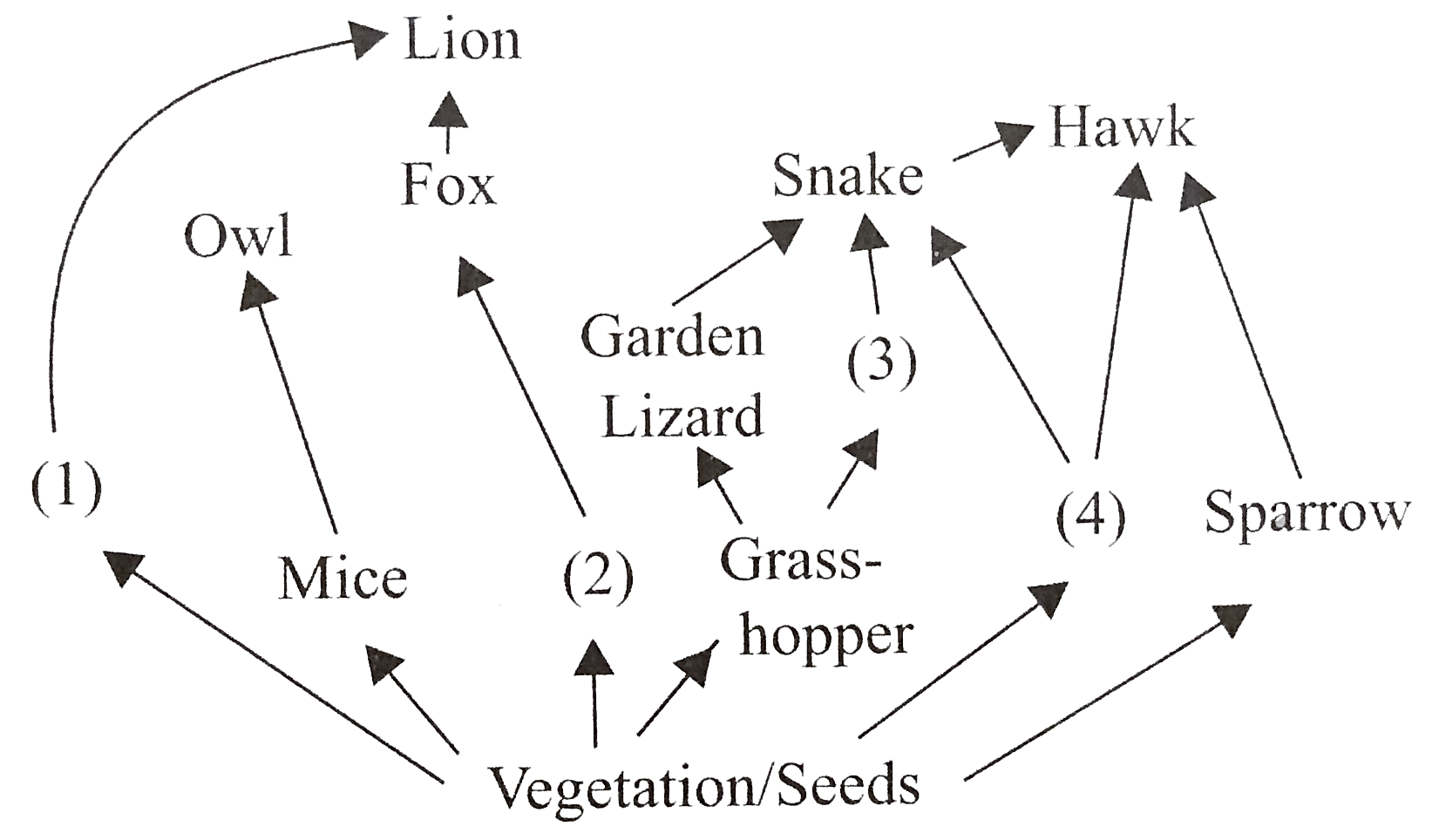
1234DeerRabbitFrogRat
1234DogSquirrelBatFrog
1234RatEagleTortoiseCrow
1234SquirrelCarPeacockPigeon
The correct Answer is:A
Step by step video, text & image solution for Given food web contains some missing organisms, 1,2,3 and 4. Identify these organisms and select the correct answer? by Biology experts to help you in doubts & scoring excellent marks in Class 12 exams.
Topper's Solved these Questions
- BOOK - NCERT FINGERTPS ENGLISHCHAPTER - ECOSYSTEMEXERCISE - Ecosystem140videos
ECOSYSTEM
- BOOK - NCERT FINGERTPS ENGLISHCHAPTER - BIOTECHNOLOGY AND ITS APPLICATIONEXERCISE - Biotechnology And Its Application137videos
BIOTECHNOLOGY AND ITS APPLICATION
- BOOK - NCERT FINGERTPS ENGLISHCHAPTER - ENVIRONMENTAL ISSUESEXERCISE - Environmental Issues142videos
ENVIRONMENTAL ISSUES
Similar Questions
Knowledge Check
- Question 1 - Select One
Identify the given structures and select the correction options,
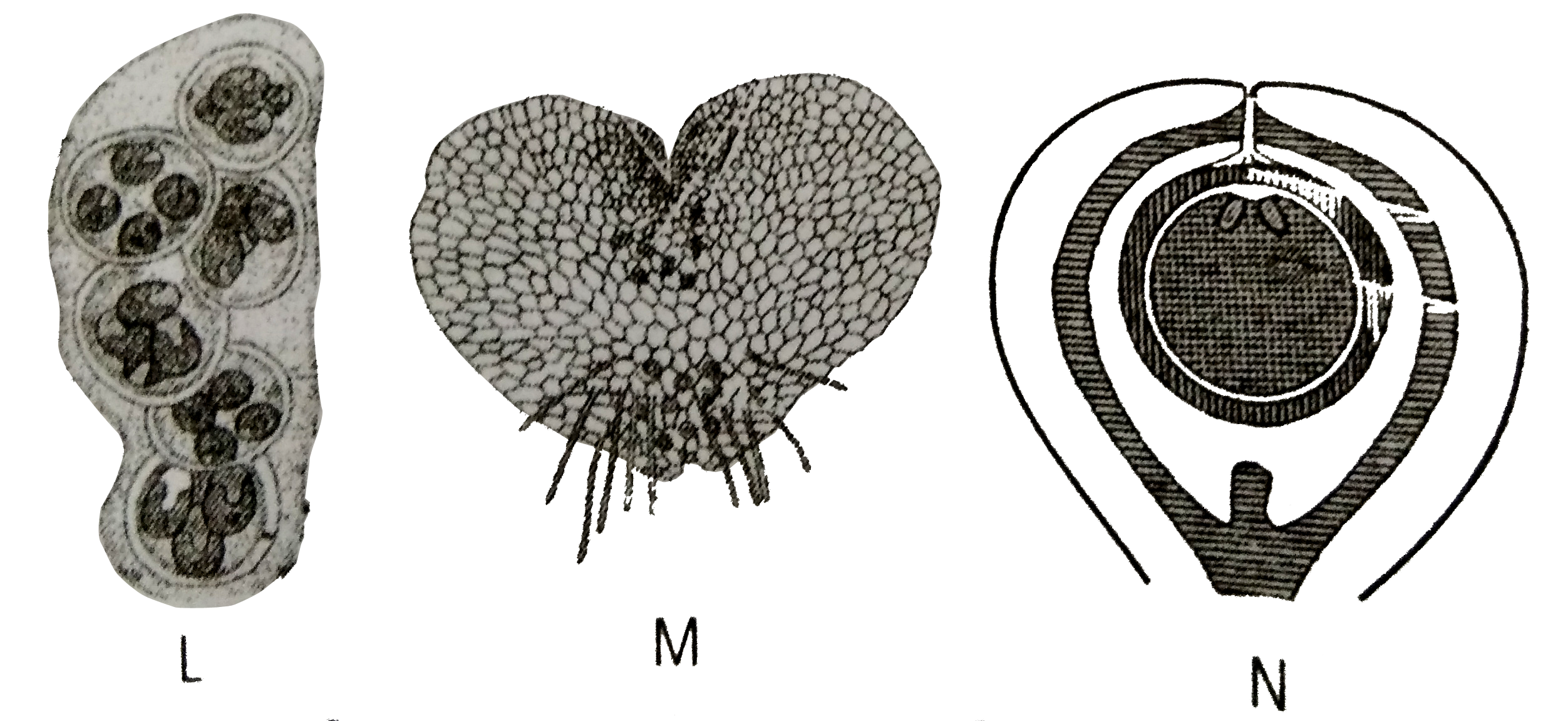 ALMNAplanospore of UlothrixProthallus (2n) of pteridophyteOvule of angiospermBLMNPalmella stage of UlothrixProthallus (n) of pteridophyteOvule of gymnospermCLMNAkinetes of ChlamydomonasSporophyte (2n) of bryophyteEndosperm off gymnospermDLMNPalmella stage ofchlamydomonasProthallus (n)_ of pteridopyteOvule of hymnospermsperm
ALMNAplanospore of UlothrixProthallus (2n) of pteridophyteOvule of angiospermBLMNPalmella stage of UlothrixProthallus (n) of pteridophyteOvule of gymnospermCLMNAkinetes of ChlamydomonasSporophyte (2n) of bryophyteEndosperm off gymnospermDLMNPalmella stage ofchlamydomonasProthallus (n)_ of pteridopyteOvule of hymnospermsperm - Question 2 - Select One
A drug used for patient A is obtained from the organism B. Identify A and B in the above statement and select the correct answer.
AABSwine fluMonascus purpureusBABAIDSPseudomonas denitrificasCABHeartPenicillium chrysogenumDABOrgan transplantTrichoderma polysporum - Question 3 - Select One
Refer to the given table that summarises the interactions between two organisms (organisms 1 and organism 2). Identify the types of interaction (A,B and C) and select the correct answer.

(i) A can be either predation or parasitism.
(ii) B can be either commensalism or amensalism.
(iii) C can beamensalism.
(iv) A can be amensalism.A(i) and (ii)B(ii) and (iii)C(iii) and (iv)D(i) and (iii)
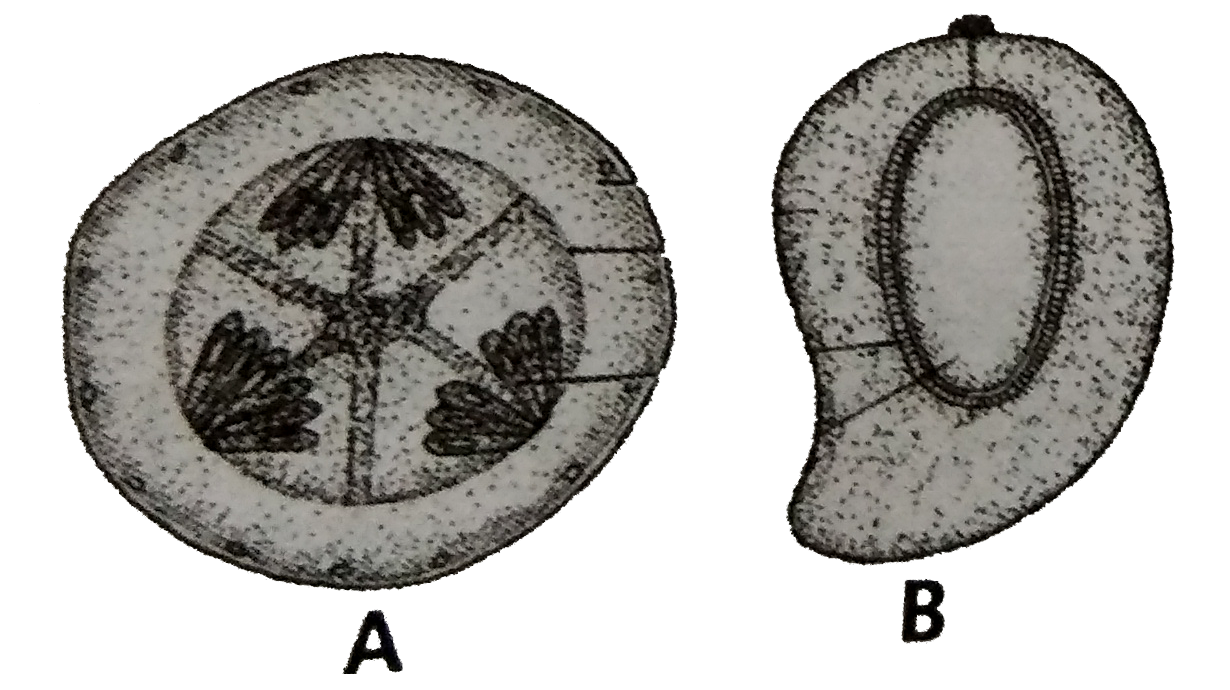
Identify the given types of fruit select the correct option.View SolutionIdentify the missing words (A,B,C and D) and select the correct option.
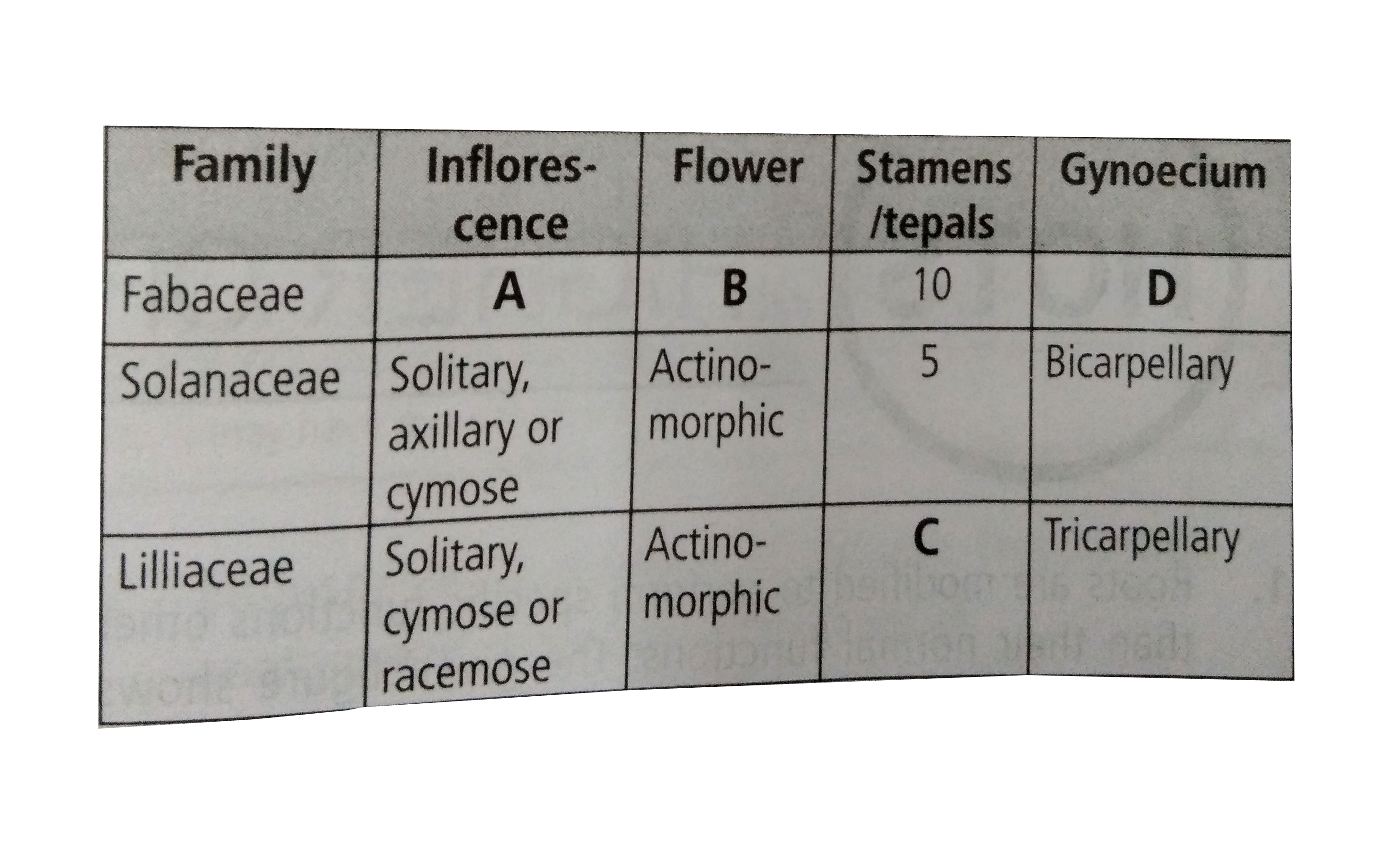 View Solution
View SolutionMatch the following diseases with the causes organism and select the correct option.
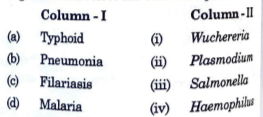 View Solution
View SolutionIdentify A and B in the given figure and select the correct option.
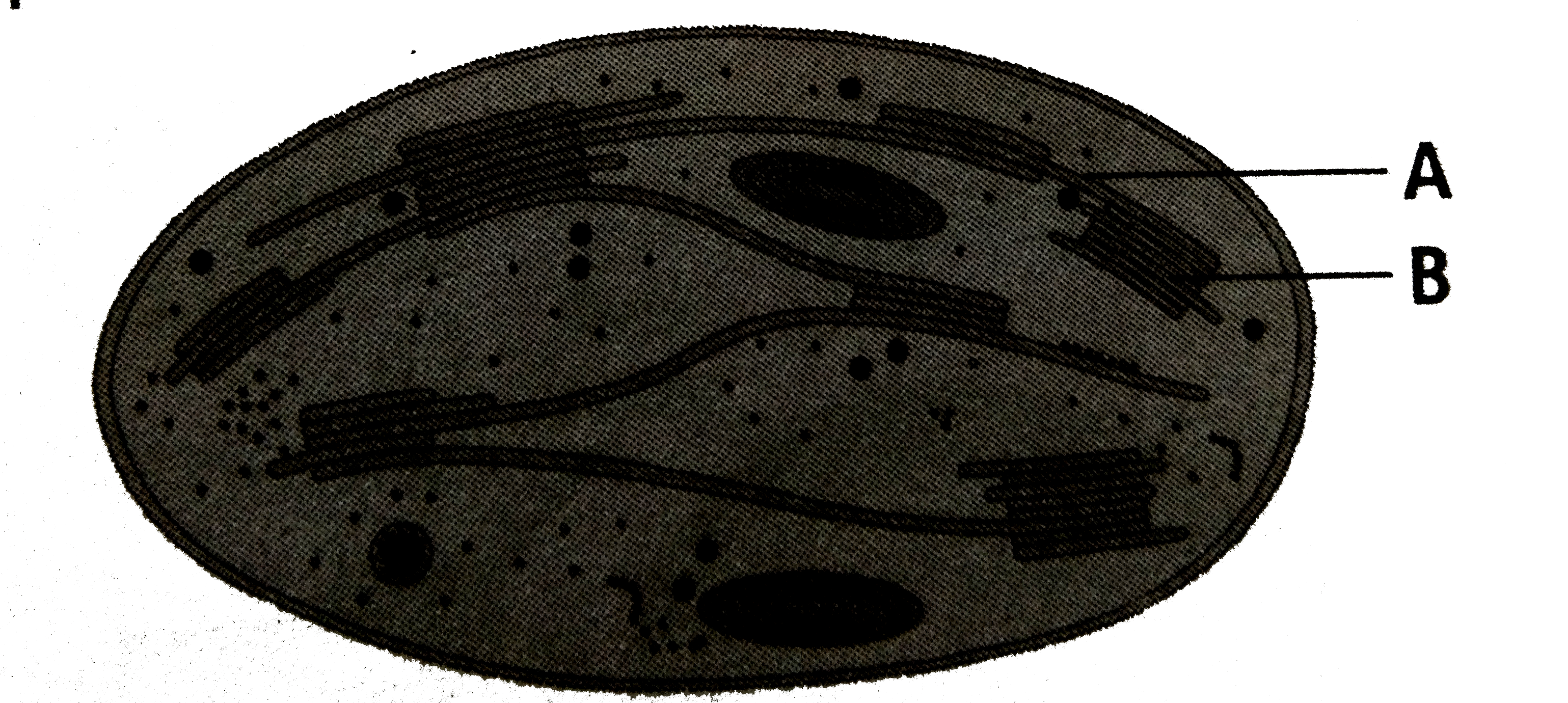 View Solution
View SolutionIdentify the given structural formulae and select the correct option.
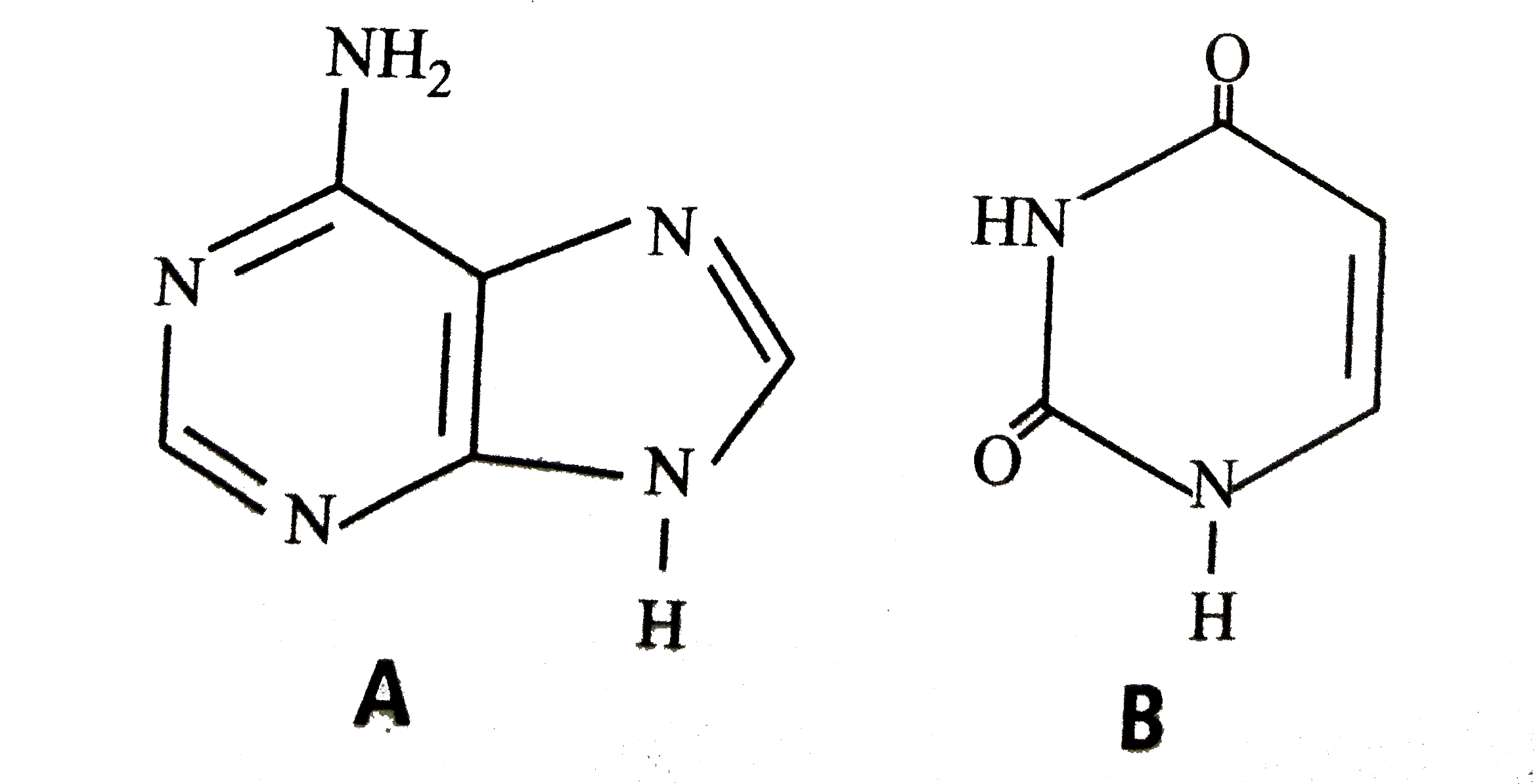 View Solution
View Solution


